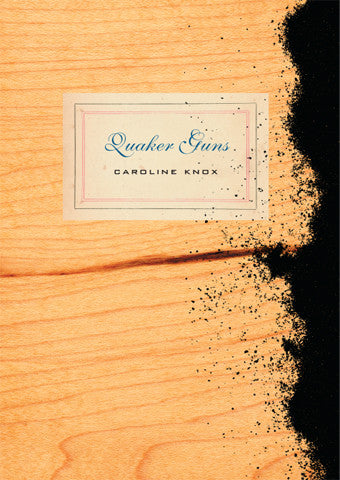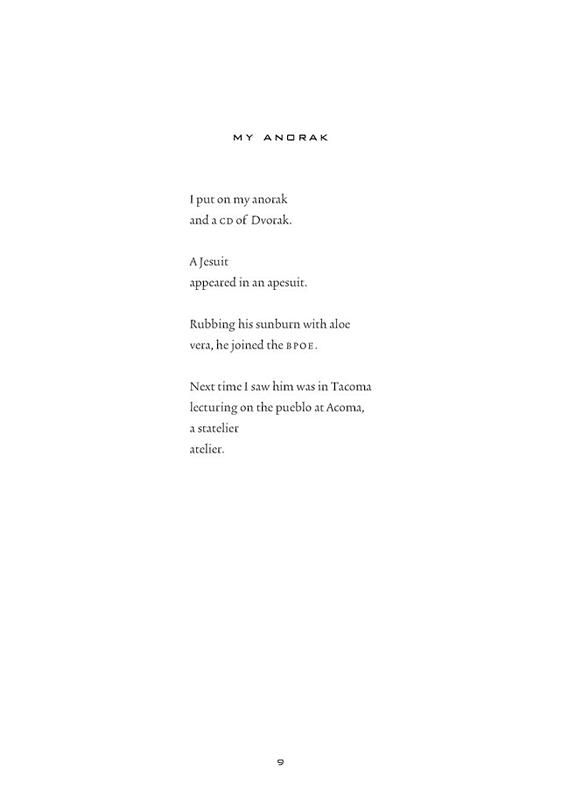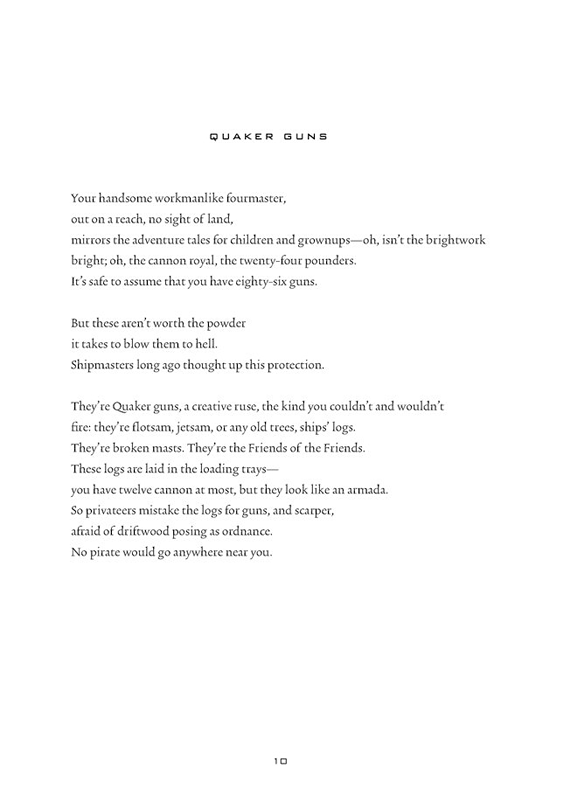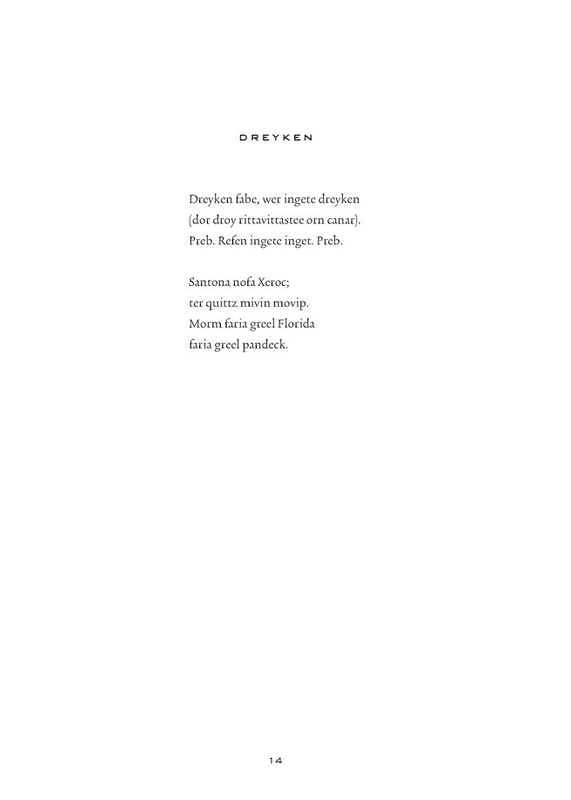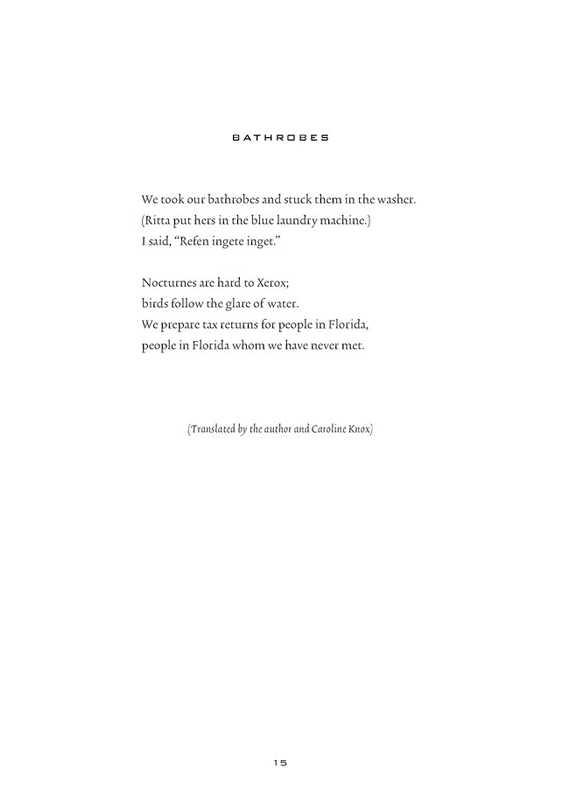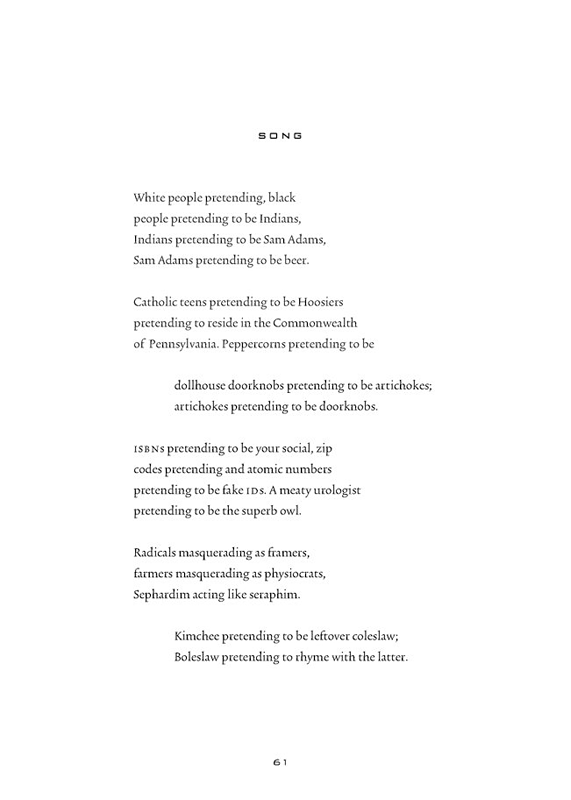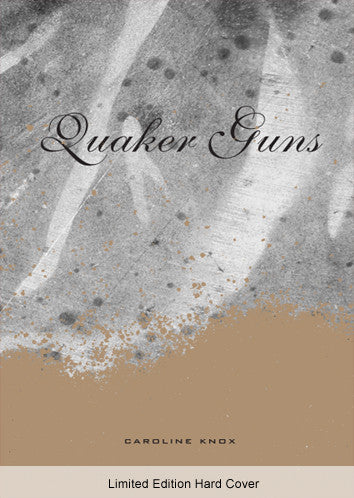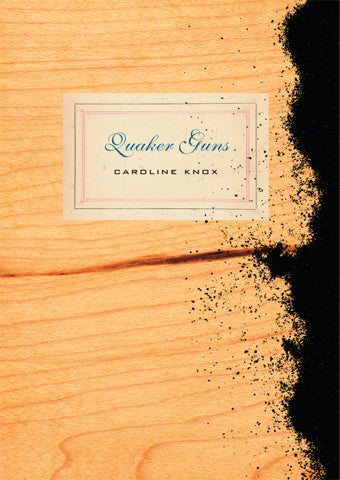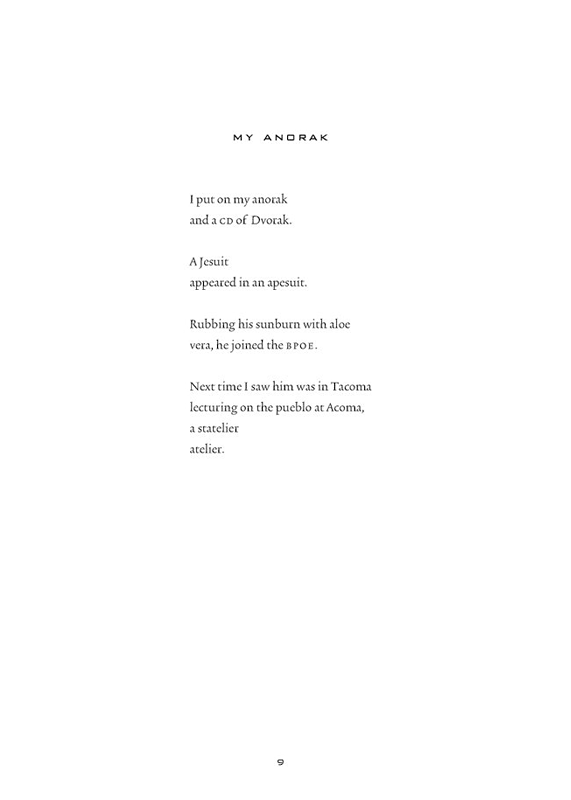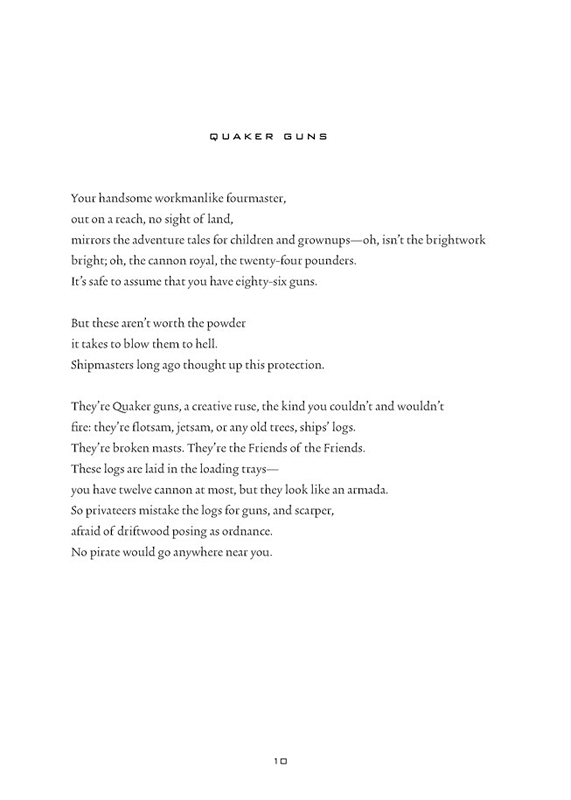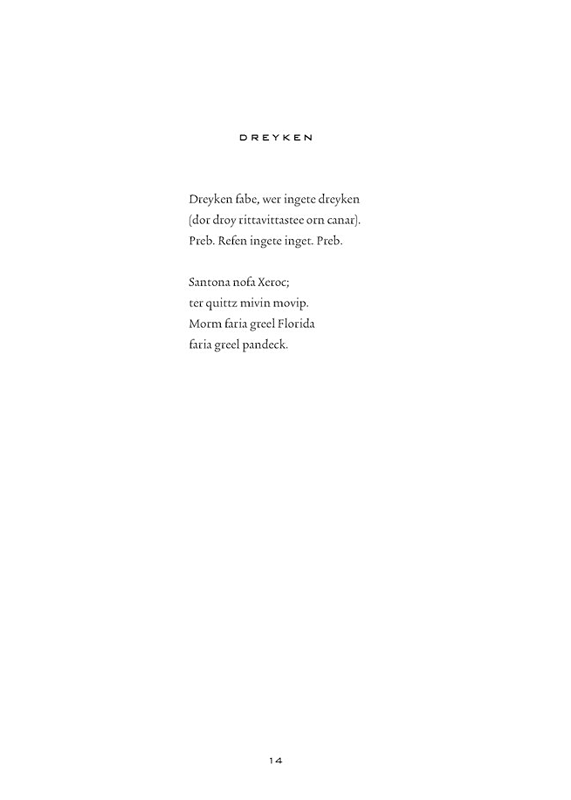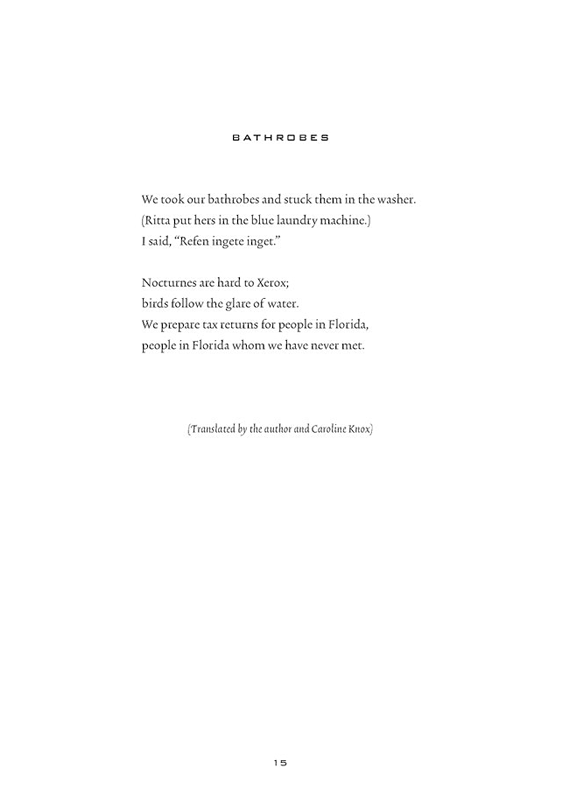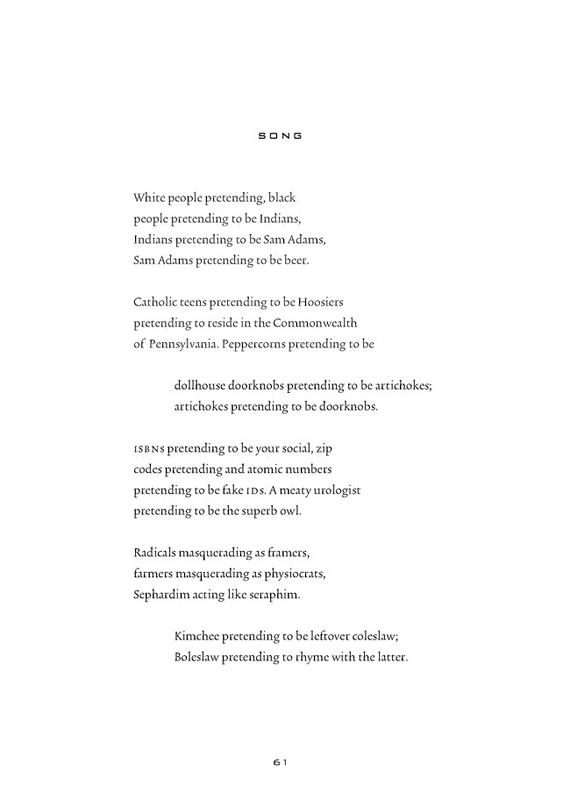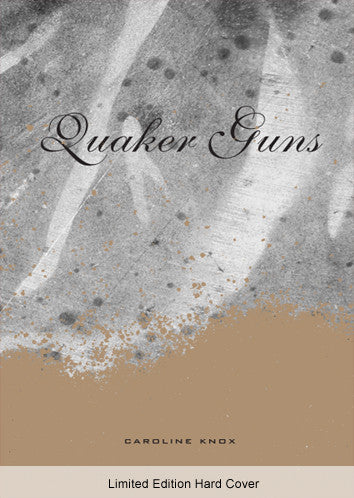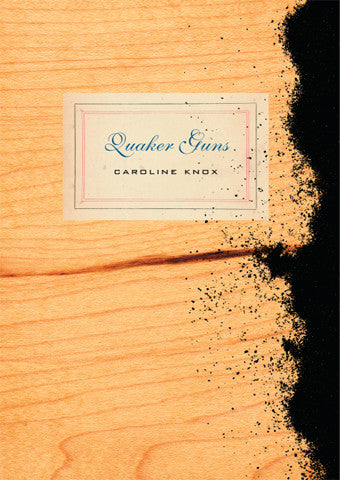
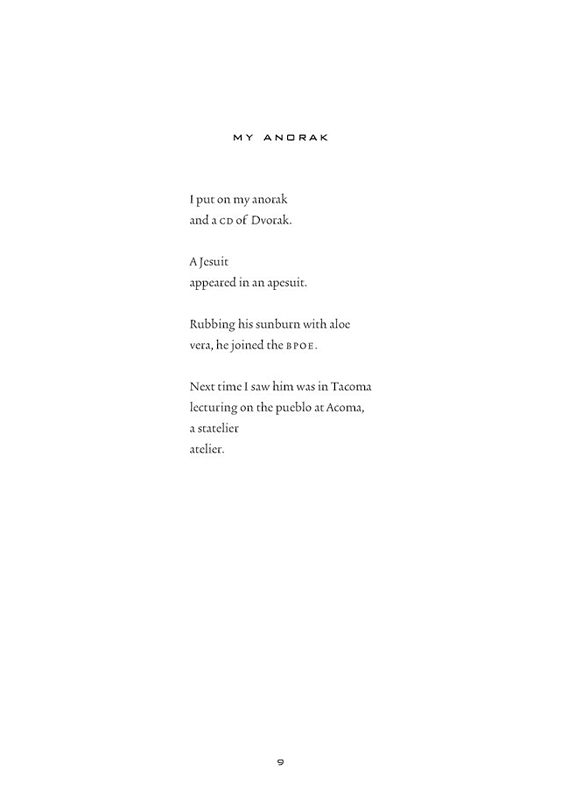
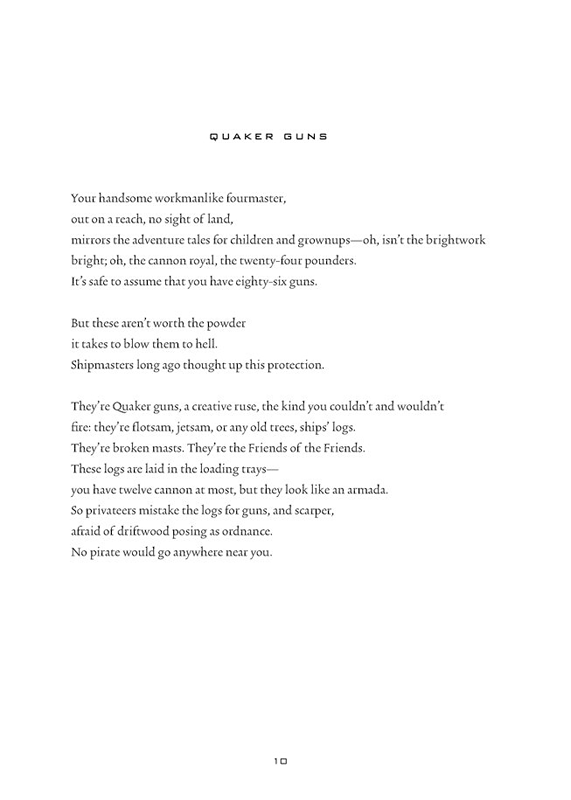
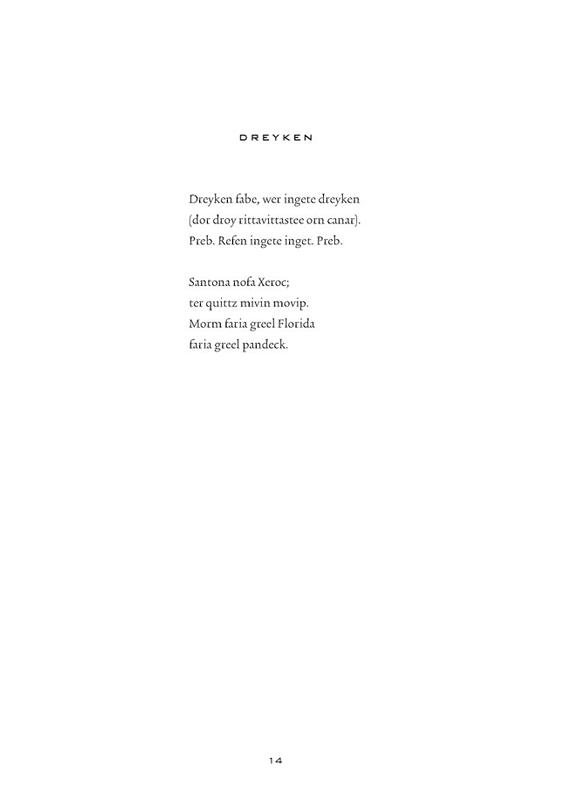
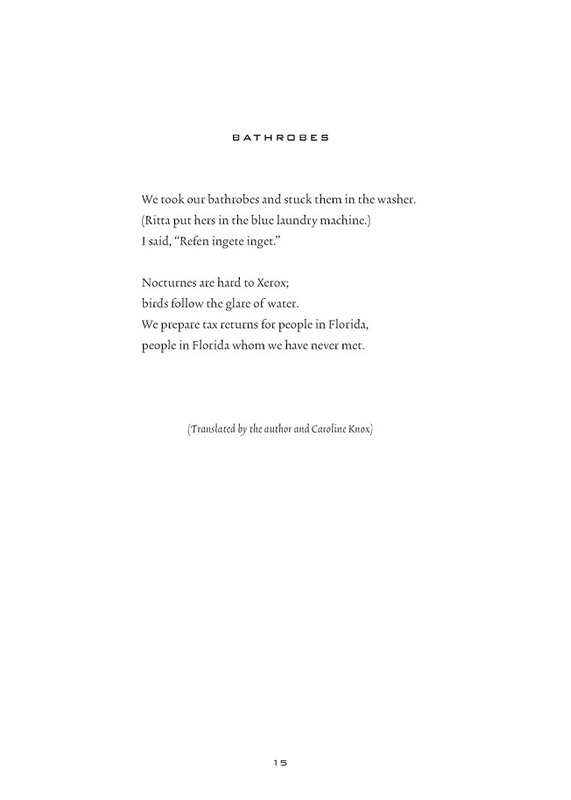
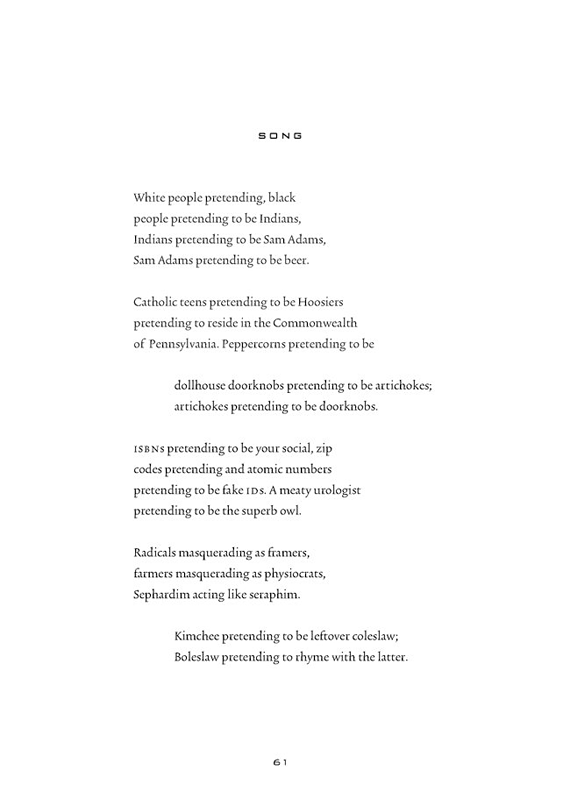
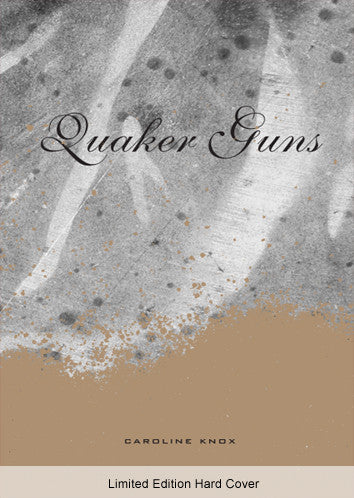
Quaker Guns
Quaker Guns
-
“A most inquisitive poet...one who has been faxing by the midnight oil while so many others were dipping their quills into dry sockets. Caroline Knox reminds us how whangy and interesting it all is.”–C.D. Wright
So much fun you might not notice you are in the presence of a master. The poems in Quaker Guns are madcap, fierce: no one’s bag of tricks is as bottomless as Knox’s.
Winner of a 2009 Recommended Reading Award from the Massachusetts Center for the Book -
The poems in Caroline Knox’s sixth collection, Quaker Guns, embody the dichotomies and disparities of American poetry: L=A=N=G=U=A=G=E, Neo-Formalism, everything under and in between.
Richard Schiewe, Coldfront
This fantasy of making begins in hope and ends in dismay: the poet is aware of the danger of clever word games. But she plays them brilliantly. Highly recommended.
Library Journal
Knox is an accomplished poet with a rich vocabulary and an even richer sense of how the world is inwardly collapsing, from one big idea to the next, one word to another. Reading her is agreeing to a voyage of discovery, rife with playfulness and smarts.
Camille-Yvette Welsch, ForeWord Magazine
In the title poem of Caroline Knox’s sixth collection, the author envisions her own literary craft braving open waters safeguarded by just such an artful design: “They’re Quaker guns, a creative ruse, the kind you couldn’t and wouldn’t / fire.” Here, the wily Knox comes as close as she ever does to a statement of literary ethics in our time of war. Like a Quaker gun, the work of art may offer “a creative ruse” for ensuring safe passage through the piratical regimes which endanger lyric utterance today. With brio to burn, Quaker Guns thus makes a bold claim that literary form itself might be literally disarming.
Srikanth Reddy, Lana Turner
Reading Caroline Knox one is grateful for her idiosyncratic guidance through the selva of text exfoliated (sometimes) and juxtaposed collagistically at other times. The desire that moves the concentrate sol of these word engines is one more powerful in our world now than it was when the world was smaller, namely “I have to have a book to really read.” I really read this one, and felt no time passing.
>Andrei Codrescu, Exquisite Corpse
The repetition of words creates an accumulating stasis that mirrors the motion of construction where techniques are repeated and repeated until a house is built, a tradition is founded, and a proverb is established.
Josh Cook, Bookslut
Masterfully crafted whimsy with serious quirk, quirky seriousness, a vocabulary swinging from colloquial to archaic, and plenty historical, scientific, and literary bits--this is the deeply pleasurable poetry of Caroline Knox, long a store favorite.
Open Books
Caroline Knox is a poet who brings an often-insistent kind of schema to her work, like a gardener training a pea vine to twist around a stake and therefore increase its ability to yield fruit. ... Around every corner is a new delight.
D.A. Powell, American Poet
-
Caroline Knox's most recent publications are Hear Trains (Wave Books, 2019), To Drink Boiled Snow (Wave Books, 2015), Nine Worthies (Wave Books, 2010) and Flemish (Wave Books, 2013). Quaker Guns (Wave Books, 2008) received a Recommended Reading Award 2009 from the Massachusetts Center for the Book. He Paves the Road with Iron Bars, published by Verse Press in 2004, won the Maurice English Award 2005 for a book by a poet over 50. A Beaker: New and Selected Poems appeared from Verse Press in 2002. Her previous books are The House Party and To Newfoundland (Georgia 1984, 1989), and Sleepers Wake (Timken 1994).
Publication Date: April 1, 2008
ISBN# 9781933517278 (6.5x9.5 70pp, paperback)
ISBN# 9781933517285 (6.5x9.5 70pp, limited edition hardcover)
Couldn't load pickup availability
